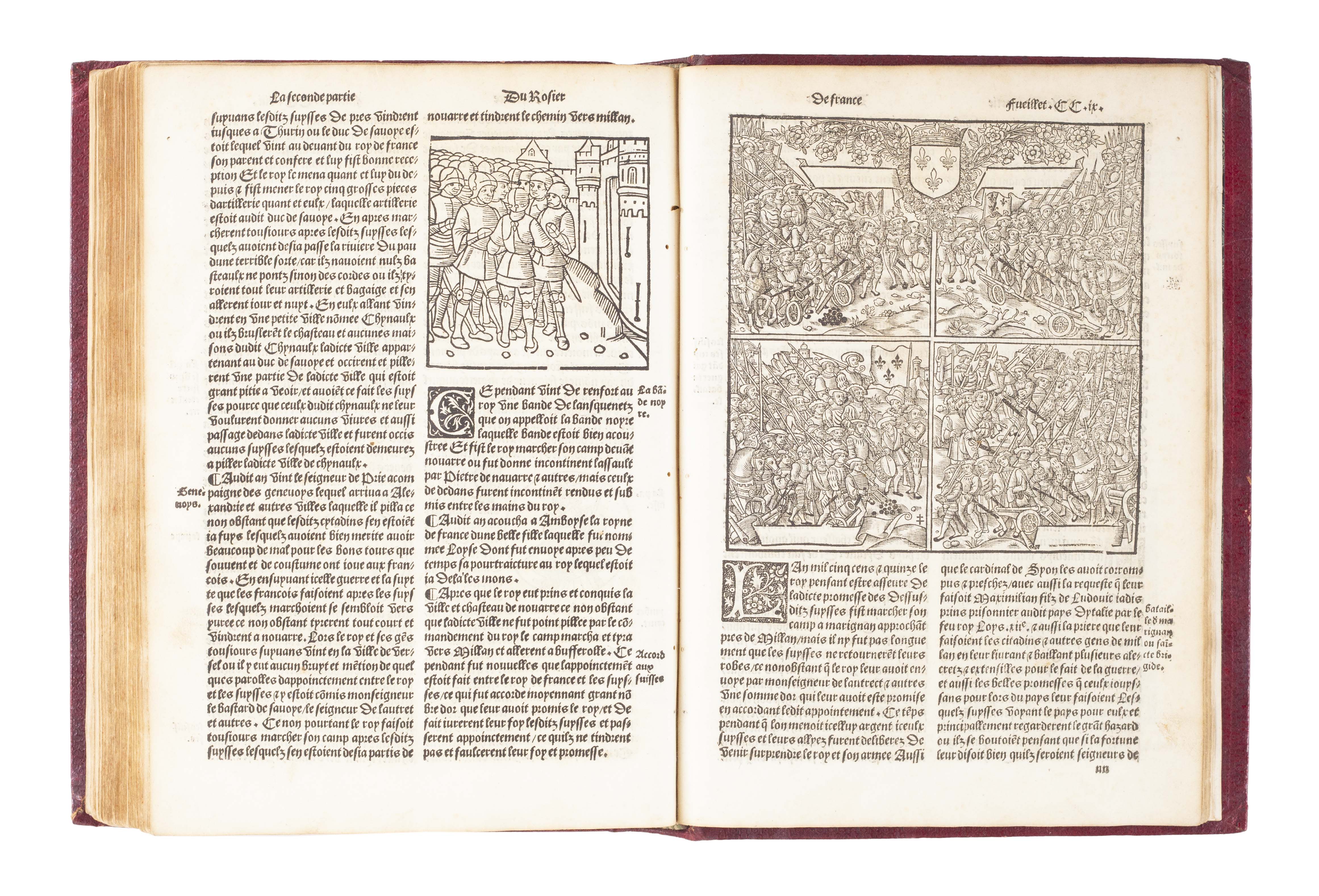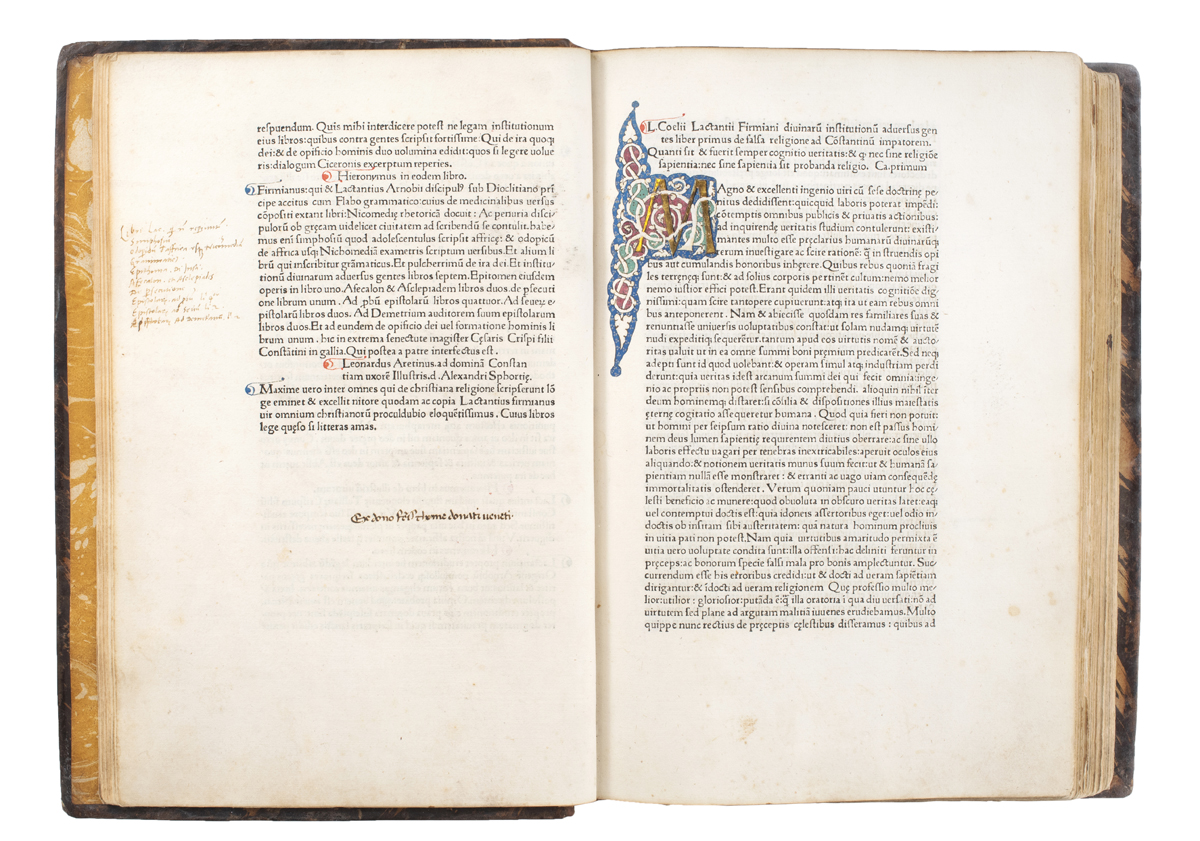
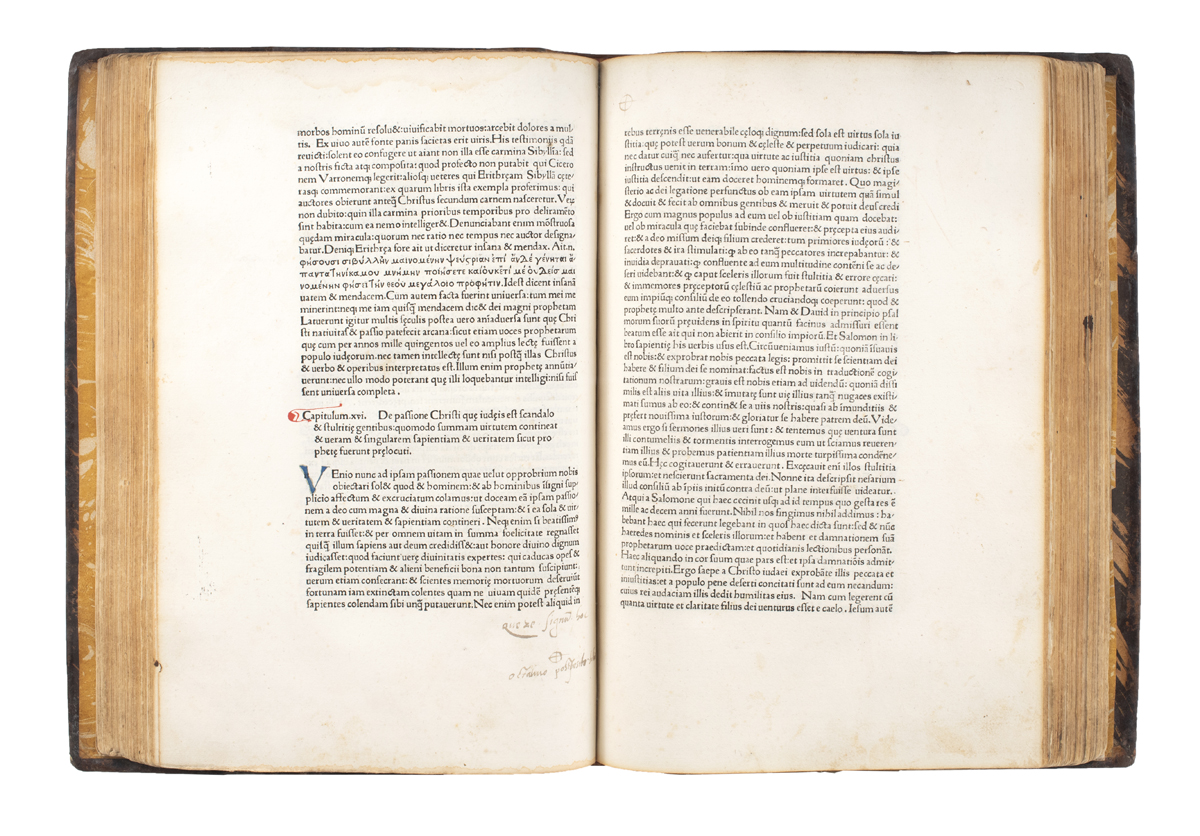
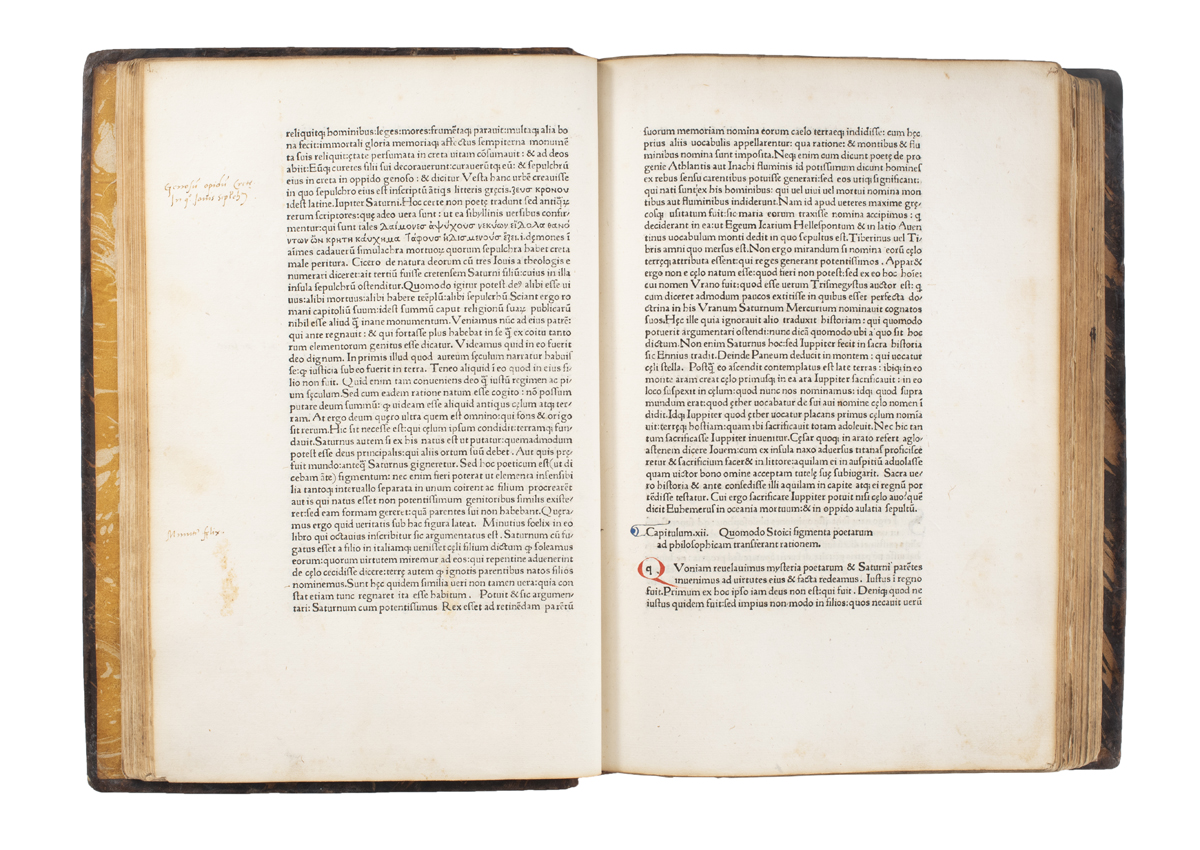
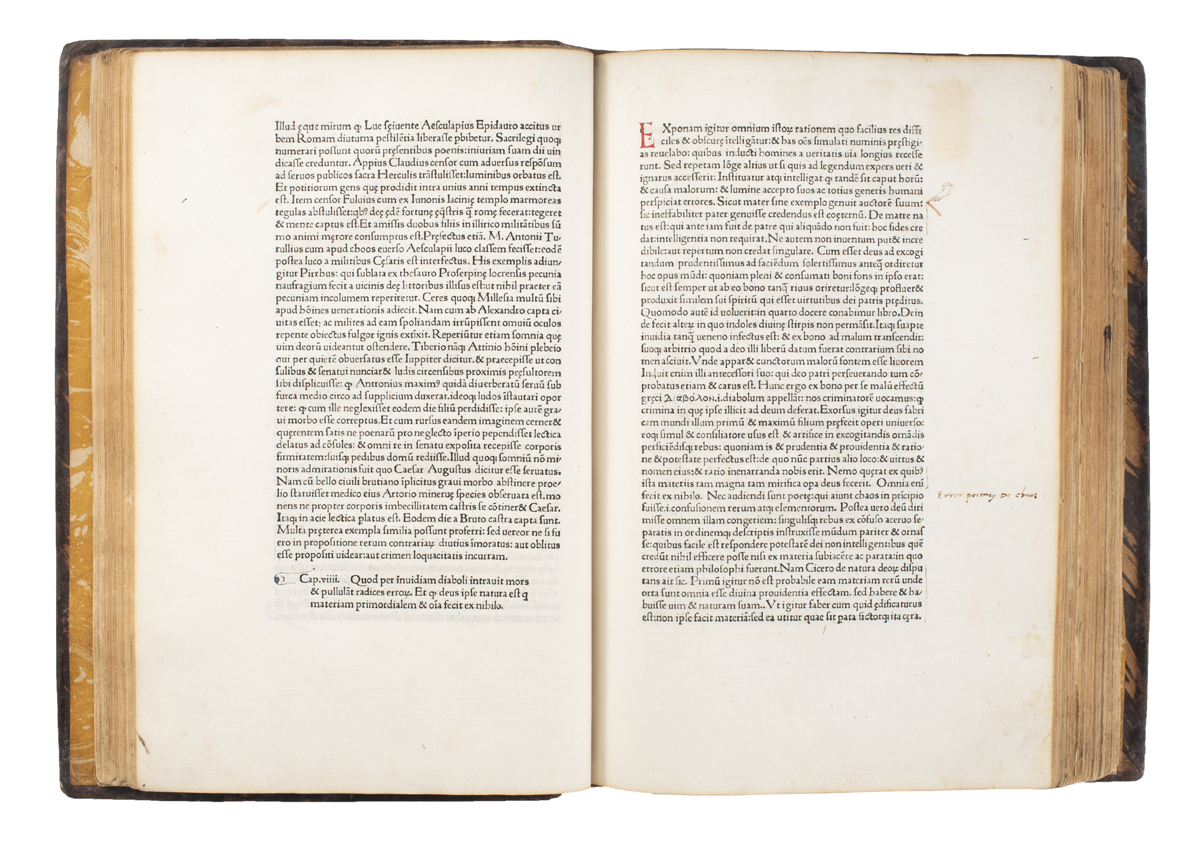
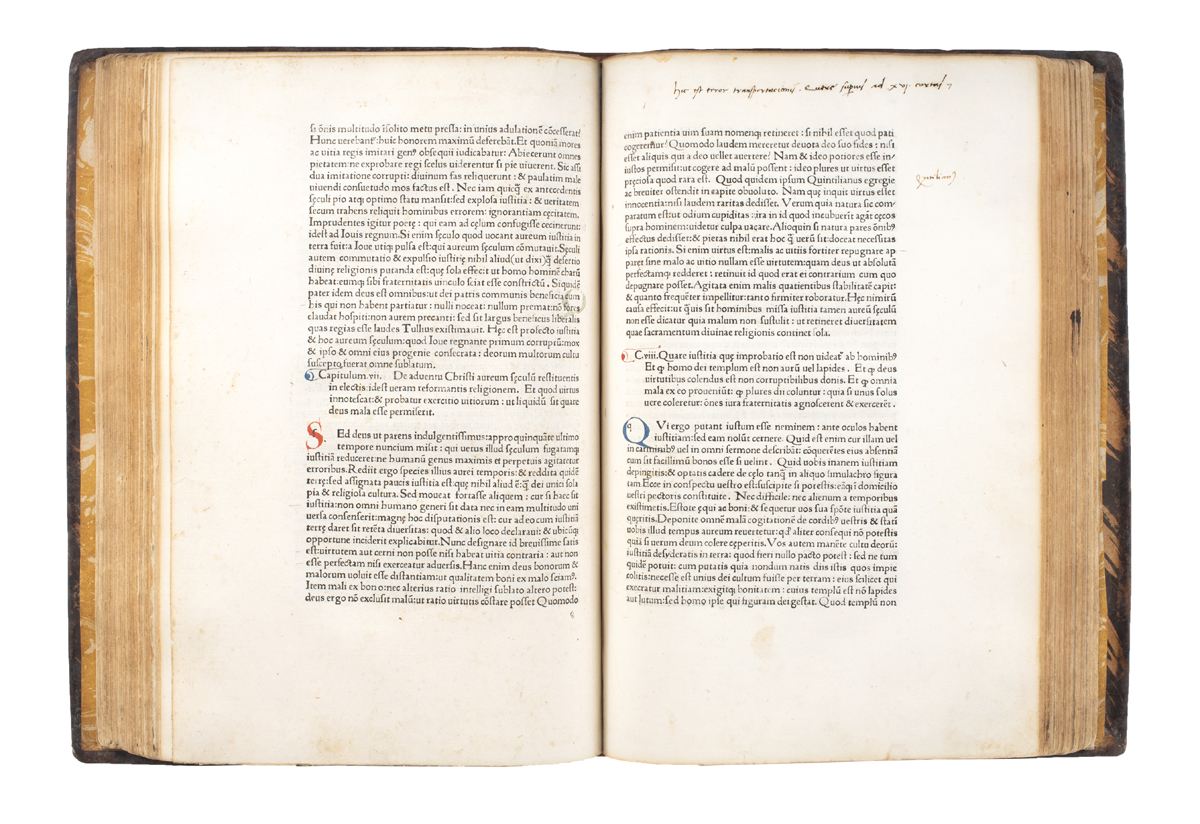
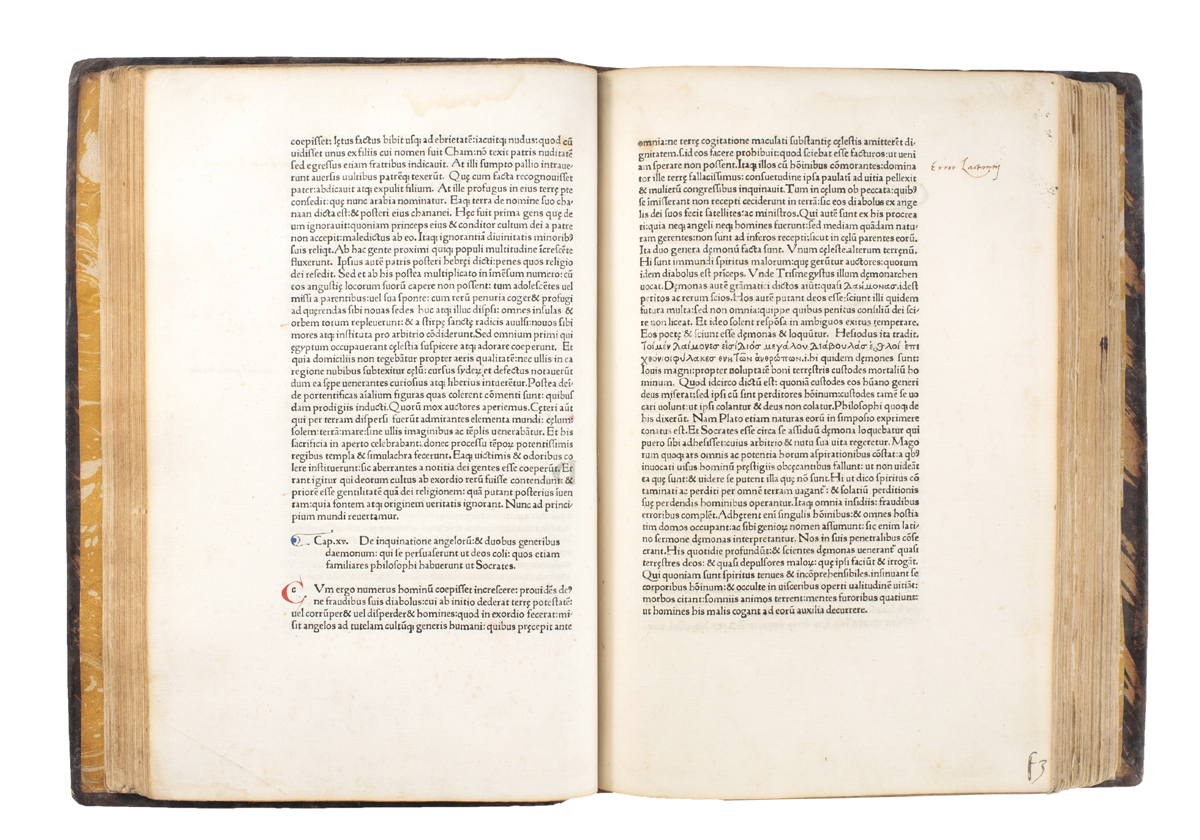
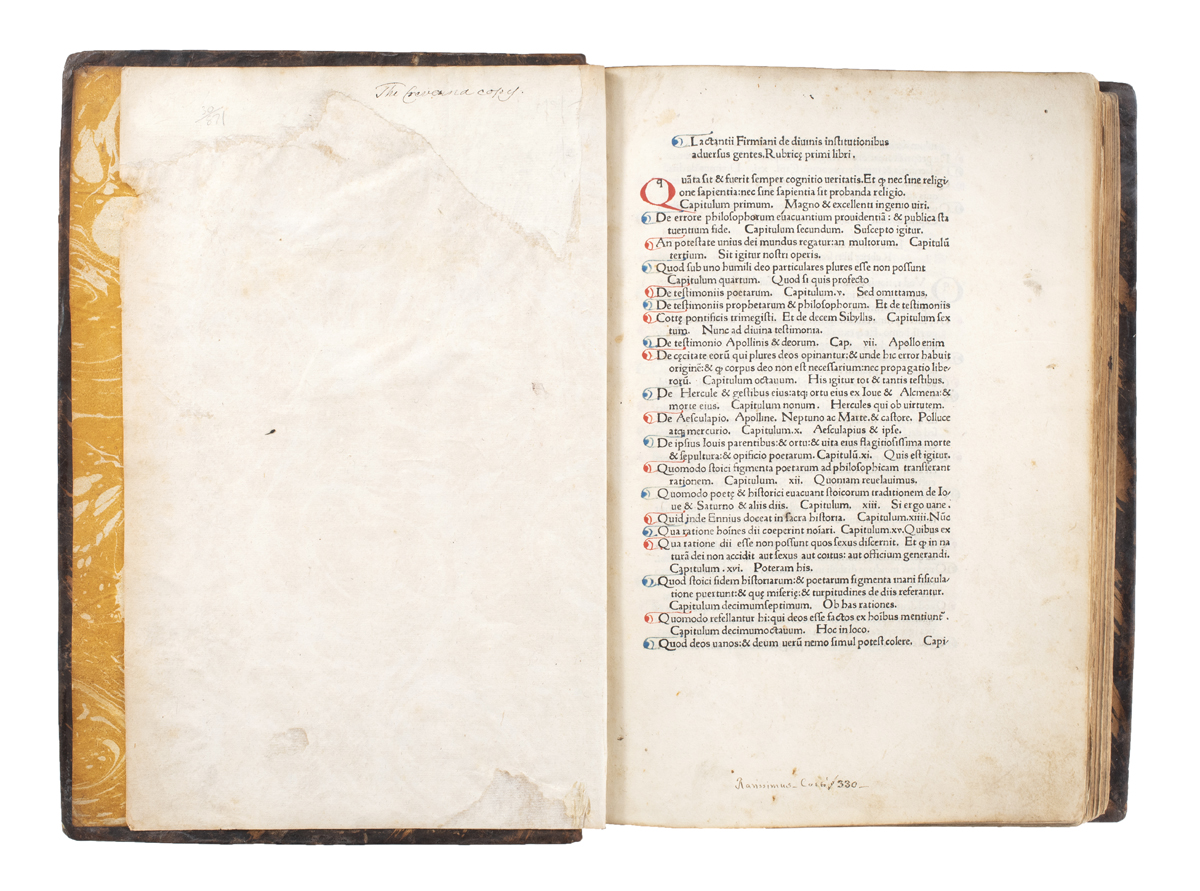
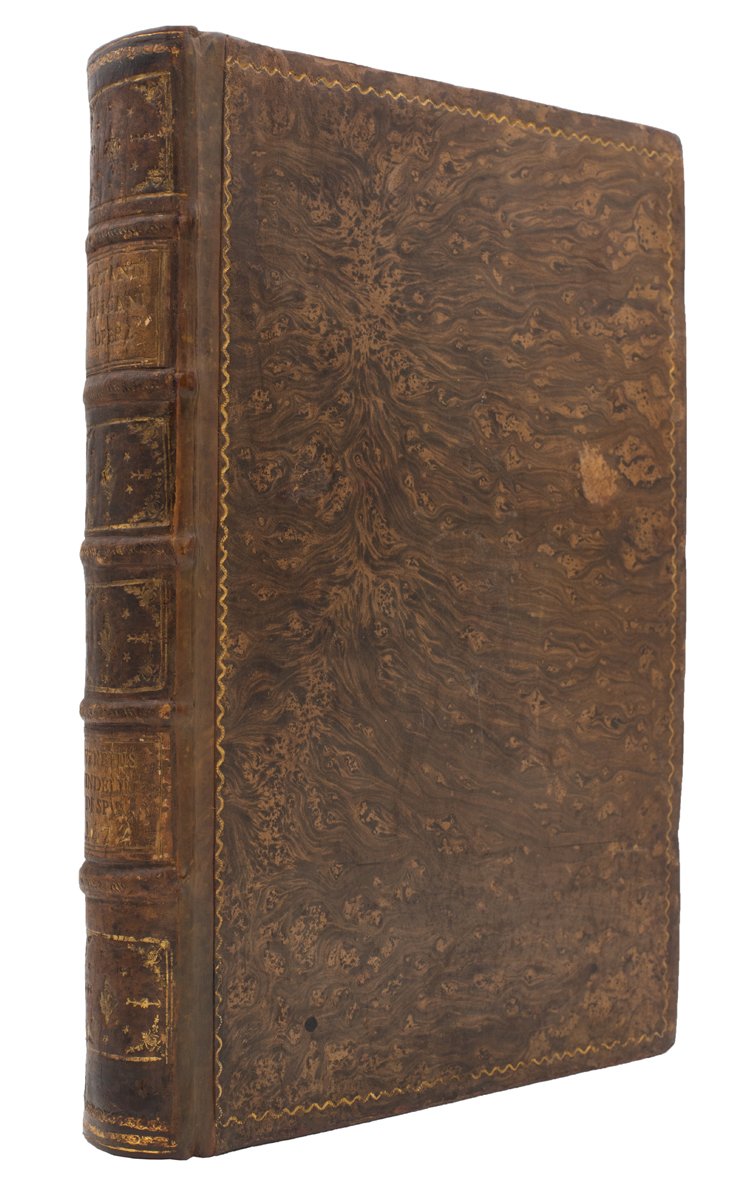
FROM THE FIRST VENETIAN PRESS
LACTANTIUS.
Opera.
[Venice,] Vindelinus de Spira, 1472.
Folio, ff. [196]; [a]2–12, [b]12, [c]10, [d–y]8, [z]11, without the first and final blanks [a]1 and [z]12, and without the appendix [A]8 ([A]8 blank); 41 lines to a page, roman letter (with some Greek type, incipit [b]2r) decorated with six-line initial M in gold with white vine decoration on a coloured ground of blue, red, and green, other initials and paragraph marks supplied in red and blue alternately, quire signatures added in manuscript in an early hand (mostly trimmed); repaired tear to lower margin of [a]10, some slight stains (mostly marginal), light dampstain to upper margin of final 20 ff., a very good, wide-margined copy; bound in eighteenth-century tree sheep, rebacked with the original spine relaid, borders roll-tooled in gilt, spine gilt in compartments with gilt lettering-pieces, marbled endpapers; a few light surface abrasions, neat repairs at extremities; contemporarygift inscription ‘Ex dono fratris thome donati Veneti’ to [b]1v (see below), numerous early marginalia in a fine humanistic hand; reportedly from the Crevenna Library (nineteenth-century inscription to the front endpaper); from the library of the English art collector William Fuller Maitland (1813–1876), with his armorial bookplate on the front pastedown.
Magnificent incunable edition of the works of Lactantius, a fine product of the first Venetian press, established in 1469 by Johannes de Spira and continued by his brother Vindelinus from 1470 until 1473. This was the fifth impression of the works of Lactantius, the hugely successful North African early Christian writer.
Lactantius’s writings, composed mainly during years of poverty and persecution following Diocletian’s ban on Christianity, were held up in the Renaissance as exemplary, both as apologetic works and as stylistic models, and acclaimed as exceptionally elegant and persuasive, earning the author the title ‘Cicero Christianus’. Though dismissed as heretical in the turbulent early centuries when Christianity was wrestling towards some univocal orthodoxy, these works were singled out by humanists (they are among the very first works to have been printed upon the invention of the printing press) in their search for a quality of reasonableness in Christianity, which embraced aspects of pagan antiquity.
The poem ‘The Phoenix’, included in this edition, can be described as Christian only in the most cryptic and indirect way, the story of the death and rebirth of that mythical bird echoing Eastern mythologies; it appears to have been the main source for the Old English poem ‘The Phoenix’ in the Exeter book.
Provenance: gift inscription of Tommaso Donati (or Donà, 1434–1504), Patriarch of Venice from 1492 to 1502, eminent theologian who published extensively (including a commentary on Aquinas), and one of the first disciples of Peter of Bergamo. MEI finds an identical presentation inscription in a copy of Saint Ambrose’s De officiis (Milan, Christophorus Valdarfer, 1474) now at Glasgow University Library (Sp Coll Hunterian Bw.3.23), which was possibly donated to the Dominicans of San Domenico in Castello, of which Donati was Prior, when he was made Patriarch of Venice.
HC 9810*; Pell Ms 6988 (6940); Pr 4040; BMC V 160; GW M16566; Goff L5; BSB-Ink L-5; Oates 1612; Bod-Inc. L-006; ISTC il00005000.
